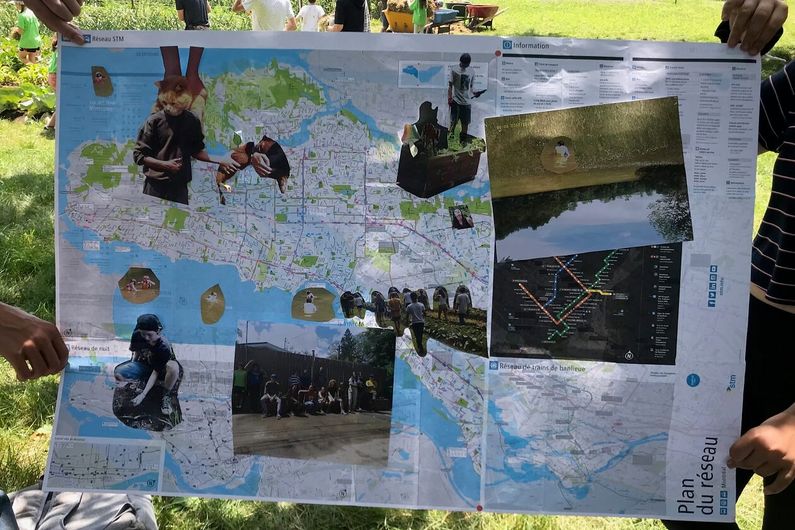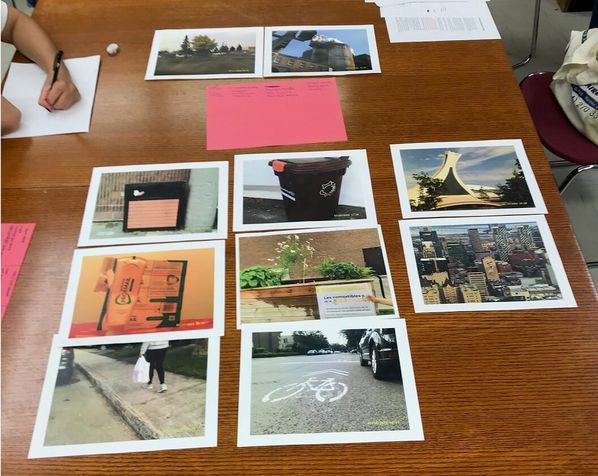How do teens feel about Montreal?
- UdeMNouvelles
08/31/2022
- Virginie Soffer
As Montreal develops a new urban planning and mobility plan, a participatory action-research project gives teenagers a chance to express their vision of their city and of their role as citizens.
What do young Montrealers think of their neighbourhoods and their city? What makes Montreal a good place to grow up? What changes would help make the city more teen-friendly?
To find out, Juan Torres, professor in the School of Urban Planning and Landscape Architecture at the University of Montreal, and Natasha Blanchet-Cohen, professor in the Department of Applied Human Sciences at Concordia University, worked with YMCAs of Québec to let teenagers speak in their own voice.
Giving Montreal teens a voice
During the summer, some 50 teens from 6 Montreal boroughs were given a chance to express their views about the city. The youths were participants in C-Vert, an environmental engagement program for teenagers aged 14 to 16 run by the YMCA.
Armed with digital cameras they were loaned for one to three weeks, some went looking for things that have an impact on their well-being; these could be on any scale, from large swaths of the metropolitan area to a small section of their own neighbourhood. Other participants were asked to become journalists and assigned to photograph their group and its summer activities, such as greening an alley.
The result was a rich collection of photos which will be shown in an exhibition this fall. The photographs also served as a starting point for discussions with the participants that prompted them to think and learn.
“We found out about the changes the young people see happening in their their city, about the spaces they like, about how they get around and where they go,” said Torres. “We learned about their concerns and their frustrations: the places they would like to go but can’t, the places where they feel trapped and would like to see changed.”
Data collection
The project also gathered research data. To begin with, the discussions were recorded and will be subjected to qualitative analysis, along with the photos. Questionnaires were also administered to obtain information on participants’ socio-economic profiles.
“As a professor of urban planning, I wanted to develop a participatory methodology that foregrounds the discourse of young people and brings their voices to the ears of the policy-makers, who are all adults—such as urban planning professionals and of course elected officials,” said Torres.
A path to citizen engagement
The project was instructive for the teenagers, but not only for them.
“Young people have expertise that can be very useful to the community,” said Torres. “Recognizing their expertise and giving them a voice is also an ethical imperative: they live in the city and are legitimate users of its spaces, just as adults are.
“The project helped the youths develop new skills, but it wasn’t educational only for them: it was also a learning experience for the adults. We aren’t always aware of young people’s pespectives. They have much to teach us, based on their experience with problems of exclusion and opportunities for inclusion in the city.”














